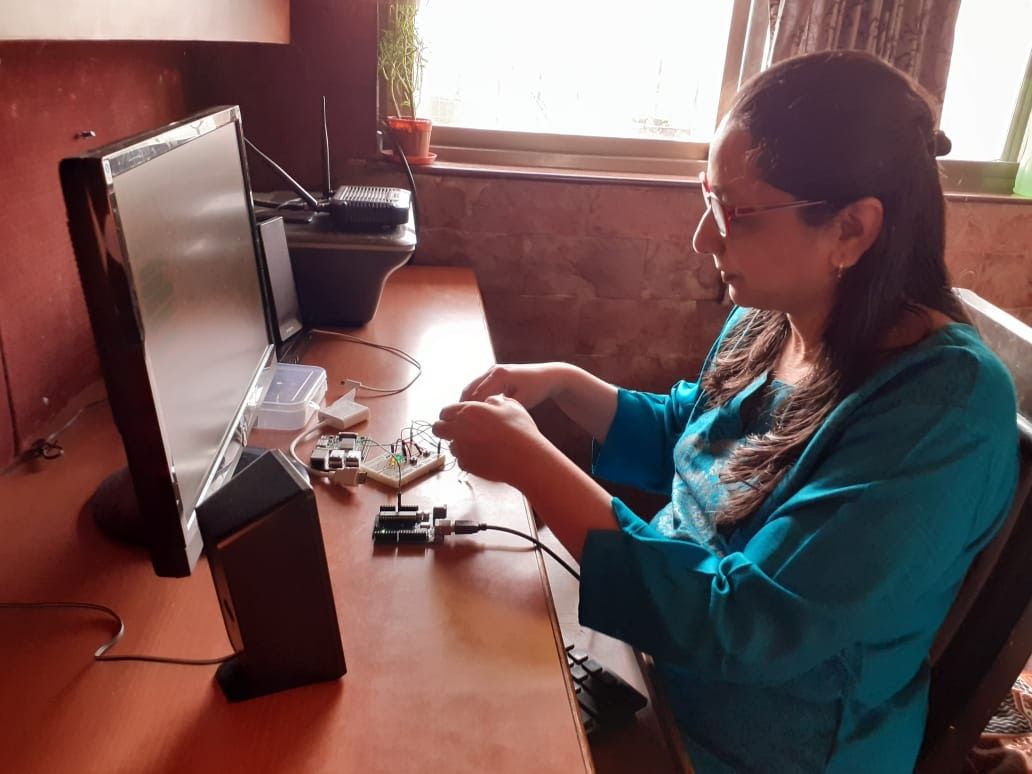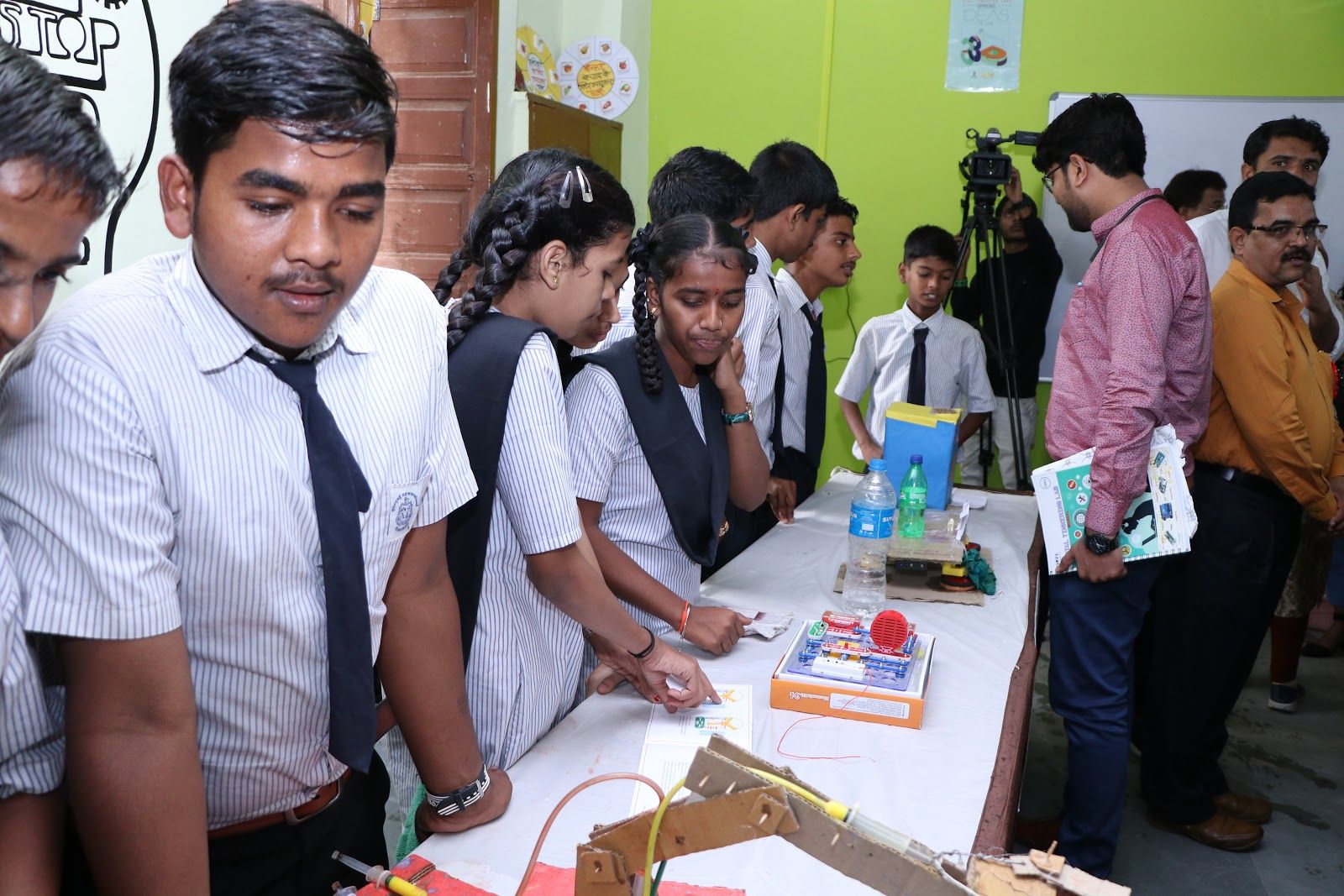Celebrating International Women's Day part one: Asawari Shiposkar
08 March 2021

To celebrate International Women’s Day, we have cast our net further afield than usual (much further!) to speak to Asawari Shiposkar, an inspirational educator based in Mumbai, India. Asawari has over 25 years of experience as a teacher, academic, trainer, author, researcher, and consultant. She is also a Mentor of Change at Atal Tinkering Labs, an Indian government initiative to promote innovation and entrepreneurship.
One of Asawari’s passions is to create opportunities for young people to experience computing. Recently she branched out into a new medium — YouTube — where she uploads free tutorials in Marathi, the local language of the state of Maharashtra, while also offering full lecture notes in English. We caught up with Asawari to ask her why she chose computer science and what motivates her to help so many children with her tutorials.
Hi Asawari, you already have an incredible wealth of experience as an educator. What inspired you to become an online content creator?
The pain point of teachers and students inspired me: a Google search provides a plethora of information on computing, but it is full of technical jargon that makes it difficult for teachers and students to understand. My students needed authentic information that was presented in a clear and simple way, so that was my main reason for becoming a YouTube content creator.
Each student studies at their own pace and has their own comfort level. Sometimes a single lecture isn’t enough to make the basic concepts clear to them. That’s when online tutorials come into play; they allow a student to revisit the same concept ten times or more — be it simple or complex — to understand it perfectly and develop a sound foundation of the subject.
You deliver your YouTube tutorials in Marathi, but the slides are in English. Can you explain what the thinking is behind this?
I am thinking local and acting global. While I want my students to understand the concept well in their mother tongue — it’s proved beyond doubt that one understands a concept more easily in one’s mother tongue — I do not want my students to feel like they can’t compete globally. Therefore, once they have understood a concept in Marathi, the consistent exposure to the English translation should make it easier for them, and eventually it should feel natural.
What has been your proudest moment as an educator so far?
Whether you do it intentionally or not, you inspire others just for being you. As an educator, we teach children how to deal with their emotions, to solve problems, to be independent, and to be organised in life. I am proud every day when my students think creatively and find solutions to a problem they face in their community and implement it in their real life. The second proudest moment in my life is the fact that my content in Marathi has been viewed by students from over 72 countries.

What are some things that excite you about the subject of computing?
When I was young, my great-grandmother would tell me mythological stories about gods and goddesses. I noticed that, when dealing with a critical situation, the god would send the goddess to deal with evil. So I asked her: “If [this] god is the strongest person, then why is he sending a goddess to deal with the evil?”. She replied that the gods and the goddesses each have their own strengths and weaknesses. The goddesses have the following strengths: problem-solving skills; mental strength during a critical situation; creative and innovative thinking while doing regular, household work; and multitasking. So computing allows me to put my strengths to use. The work also fuels my passion, so I am always excited and looking forward to working on new projects.
What are some things that you’d love to change about the way the world sees computing?
There are three things that I would love to change:
1. The mindset that computing is very hard.
2. To demystify the myth that computing isn’t girls’ cup of tea.
3. The mindset of non-technical teachers regarding computing, who believe that they don’t need to understand it.
Who are some other online content creators that inspire you and why?
Brahma Kumari Sister Shivani (a famous Indian spiritual teacher and software engineer) inspired me to create online content. Whenever I was stuck at any point of my life, or had any life problems, I’d watch her videos and they would give me practical solutions. I loved how her videos and content could ease the pain points of her followers.
Why do you think more boys study computer science than girls currently?
There are three factors that contribute to this:
1. The access to simple equipment which arouses curiosity. Boys often have better opportunities and access. Things are changing, but that change is slow.
2. Though I am a woman, I still feel that training is needed for some girls to look at logic beyond their emotions.
3. The preconceived notion that computer science is for boys, and also the lack of exposure to computers from a young age. Most girls are never given video games or gadgets, which can arouse their curiosity.
How has the balance of girls and boys changed in your local coding clubs since you started working with them?
It was quite lopsided initially due to the digital divide between the two genders. Due to the gradual development of new social norms however, things are improving for the better. I believe that positive change will occur in the near future; we will see a perfect balance very soon!
What would you say to a girl who is reading this and is thinking about getting into computing?
Always remember that computing is for us, and that it helps us become more efficient and effective. You must get rid of the preconceived notion that computer science is only for boys. We are equally as efficient, and have problem-solving skills that make us amazing computer scientists!
Thank you Asawari!
Want to help the National Centre for Computing Education find out what works for getting more young girls interested in computing? Encourage your school to take part in our Gender Balance in Computing programme.